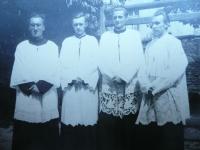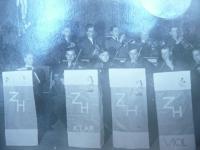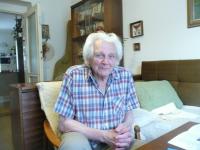Music has helped me everywhere

Download image
Antonín Beneš was born May 6, 1929 in Kročehlavy near Kladno. Since his young years he was attending the monastery of the Calasanctius Order and he witnessed the persecution of the monks, their bravery, and the closing down of their monastery in 1950. After completing the higher elementary school in 1944 he began working in the crankshaft production plant of the Poldi Ironworks. On September 12, 1944, Antonín witnessed the bombardment of the wood near Svatý Ján in Dubí by American airplanes, which resulted in death of about thirty-five people. The reason for this incident still remains unclear. In 1950 he was drafted to basic military training, where he served as a signaler and which lasted for three years. Antonín played the violin already since he was a child, and later he also learnt the contrabass. After his military service he worked in Kladno and he was an amateur player in the Central Bohemian Philharmonic, which he established and whose first conductor was Josef Vašata.



